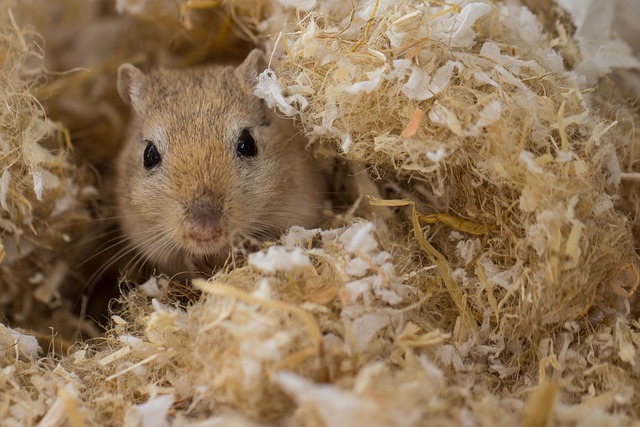Rodents like mice and rats pose significant health and property risks in residential areas due to their adaptability and keen senses, leading to the search for eco-friendly alternatives to traditional toxic controls. A shift towards non-lethal methods such as sealing entry points, sanitation, natural repellents, and live traps prioritizes prevention and humane capture. Community engagement through education and collaborative initiatives further enhances these eco-conscious residential rodent control strategies, fostering a healthier ecosystem and peaceful coexistence between residents and wildlife.
“In exploring effective yet eco-friendly rodent management, this article delves into innovative solutions that prioritize both environmental safety and humane practices. From understanding rodent behavior and their ecological impact to comparing traditional methods with greener alternatives, we guide readers through implementing safe, residentially-focused strategies. Additionally, we highlight community engagement as a key component of long-term, sustainable rodent control. Discover how these approaches transform urban environments while ensuring the well-being of both humans and wildlife.”
Understanding Rodent Behavior and Their Impact on the Environment
Rodents, such as mice and rats, are highly adaptable creatures with remarkable survival instincts. Understanding their behavior is crucial for implementing effective and eco-friendly residential rodent control methods. These mammals are known for their excellent sense of smell, hearing, and sight, allowing them to navigate and locate food sources efficiently. They tend to seek shelter in areas offering protection from predators and extreme weather conditions. In residential settings, attics, walls, and crawl spaces often provide ideal habitats due to the availability of food, water, and potential nesting sites.
The impact of rodents on the environment can be significant. They are known carriers of various diseases and parasites that can pose risks to human health. Moreover, their destructive behavior, such as gnawing through wiring and insulation, can lead to property damage and safety hazards. However, traditional rodent control methods often involve toxic chemicals, which can harm non-target species and contaminate the environment. Therefore, adopting eco-friendly solutions is essential for maintaining a safe and healthy living space while minimizing the ecological footprint.
Traditional vs. Eco-Friendly Rodent Control Methods
In recent years, there’s been a growing shift from traditional to eco-friendly rodent management methods, especially in residential areas. Traditional approaches often rely on toxic chemicals and traps, which can pose significant risks to non-target species, pets, and human health. These methods are also ineffective at addressing the root causes of rodent infestations, leading to recurring problems.
Eco-friendly solutions, on the other hand, focus on prevention and non-lethal controls. This includes sealing entry points, maintaining proper sanitation, using natural repellents like peppermint oil or cinnamon, and employing live traps that allow for humane capture and release. These methods not only protect the environment and vulnerable species but also provide long-term solutions for residential rodent control by disrupting the rodents’ habitat and food sources.
Implementing Safe and Humane Practices in Residential Settings
In residential settings, implementing safe and humane practices for rodent management is essential for maintaining a healthy living environment while ensuring the well-being of both occupants and wildlife. Property owners and residents can adopt various eco-friendly strategies to discourage rodents from entering homes. This includes sealing entry points with natural materials like steel wool or concrete, as well as using scent repellents derived from essential oils that are harmless to humans but deter rodents.
Promoting a clean and clutter-free environment is another effective approach. Rodents are attracted to food sources and hiding places, so regular cleaning and proper storage of food items can significantly reduce their appeal to these pests. Additionally, installing humane traps, such as those that capture rodents alive without causing harm, allows for the safe removal of intruders while providing an opportunity for relocation or rehabilitation. Such practices not only contribute to a healthier ecosystem but also foster peaceful coexistence between residents and wildlife.
Community Engagement and Long-Term Solutions for Effective Rodent Management
Community engagement plays a pivotal role in implementing long-term, eco-friendly solutions for effective rodent management, particularly in residential areas. Educating residents about the behavior and habitat of rodents helps foster a collective understanding of the issue, encouraging everyone to take proactive steps. This includes proper waste management, sealing entry points, and maintaining a clean environment, which not only reduces food sources but also discourages rodent infiltration. By empowering residents with knowledge, communities can create a more rodent-resilient ecosystem.
Moreover, community-driven initiatives such as regular inspections, neighborhood watch programs, and collaborative pest management strategies can significantly enhance residential rodent control. Sharing information and resources among neighbors strengthens the overall defense against rodents, ensuring that no single household bears the burden alone. This collective approach not only promotes humane practices but also fosters a sense of shared responsibility, leading to more sustainable and eco-conscious solutions for everyone involved.
In conclusion, managing rodents in a safe and humane manner is not only beneficial for the environment but also crucial for maintaining healthy residential areas. By understanding rodent behavior and adopting eco-friendly solutions, we can effectively navigate the challenges posed by these pests without causing harm to their ecosystems or our communities. Implementing long-term strategies that involve community engagement ensures sustainable rodent control, fostering a balance between human habitats and wildlife. For effective residential rodent control, it’s time to embrace green methods that preserve both homes and nature.
